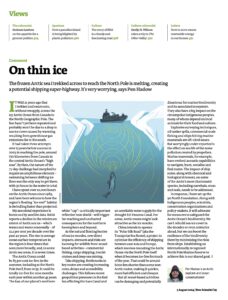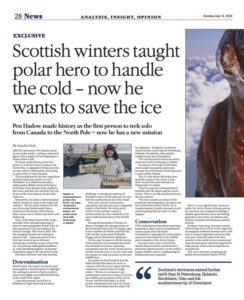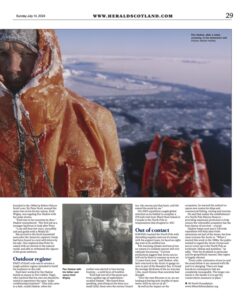Mongabay: We need a North Pole Marine Reserve to secure a healthy future for Arctic waters
- In 2024, the cod fishing moratorium on Newfoundland’s Grand Banks was lifted, 32 years after a historically significant ecological collapse of the fish’s population was caused by overfishing.
- The Central Arctic Ocean Fisheries Agreement signed in 2019 provides an example of how to address the threat from such overfishing by using the precautionary principle, international collaboration and science led evaluations of fish stocks.
- The future health of Arctic marine ecosystems can be secured by establishing a North Pole Marine Reserve, a new op-ed argues.
- This article is a commentary. The views expressed are those of the author, not necessarily Mongabay.
“In the 1990s, a single moratorium announcement wiped out an entire industry, leaving 37,000 people unemployed overnight. The ecological collapse of the Canadian Grand Banks Cod Fisheries is the most famous historical example of a collapse in fish stocks due to overfishing. Not only were cod stocks severely depleted, it was the largest layoff of workers in one day, and the biggest ever industrial layoff in Canada’s history: fishing fleets, processing plants, associated support businesses were all impacted when the moratorium was declared. It devastated coastal communities in Newfoundland and Labrador and led to significant migration, changing some of those communities forever…”
Read the full commentary by our Research Director – Dr Graeme Chesters at Mongabay.com



